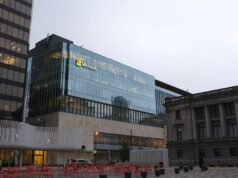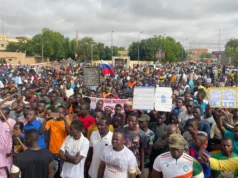Apple has announced an investment worth $390 million in Finisar, the US-based tech firm that produces the vertical-cavity surface-emitting lasers or VCSEL that powers the Face ID feature of iPhone X. The amount would be spent in furthering R&D effort on this front while also setting up a new plant in Sherman, Texas that would be producing the VCSELs.
The investment is being sourced from the $1 billion Advanced Manufacturing Fund that Apple created to support the manufacturing industry in the US, thereby creating more jobs for US nationals. The latest venture would be creating 500 high-skill jobs comprising of engineers, technicians and support staffs.
Finisar said they are looking to transform a 700,000 sq. ft. abandoned plant in Sherman into a state-of-the-art manufacturing facility producing some of the most advanced VCSEL ever to go into the making of a consumer electronics product. The company expects to commence shipping from the second half of 2018 itself, with all the VCSELs that Apple buys from Finisar set to be produced in the Sherman plant itself.
Apple first started procuring VCSELs from Finisar when it launched the AirPods around end-2016. The sensor is used to determine if the user has inserted or removed the earbud. In the new iPhone X, VCSELs are used in-depth sensing roles and are a vital component of its Face ID, Animoji features which again are among the most standout features of the iPhone X. VCSEL also comes across as a more compact, efficient and affordable alternative to edge emitting lasers used otherwise.
Also, with Apple harboring lofty dreams with its Face ID tech, with plans to incorporate the same on a forthcoming version of iPad Pro, demand for VCSEL is only expected to increase exponentially in the coming years. Face ID also seems to be the authentication mechanism set to be standardized across all of Apple’s devices in future that currently features Touch ID. In fact, Apple has already stated it would be purchasing 10-times more VCSEL wafers in the Q4 2017 than was produced in the entire 2016.
Apple share the progress it has made with its self-driving car project
Meanwhile, the Finisar investment had proved to be only the second time Apple had dipped into its $1 billion Advanced Manufacturing Fund, the first time when it invested $200 million in Corning Incorporated.








